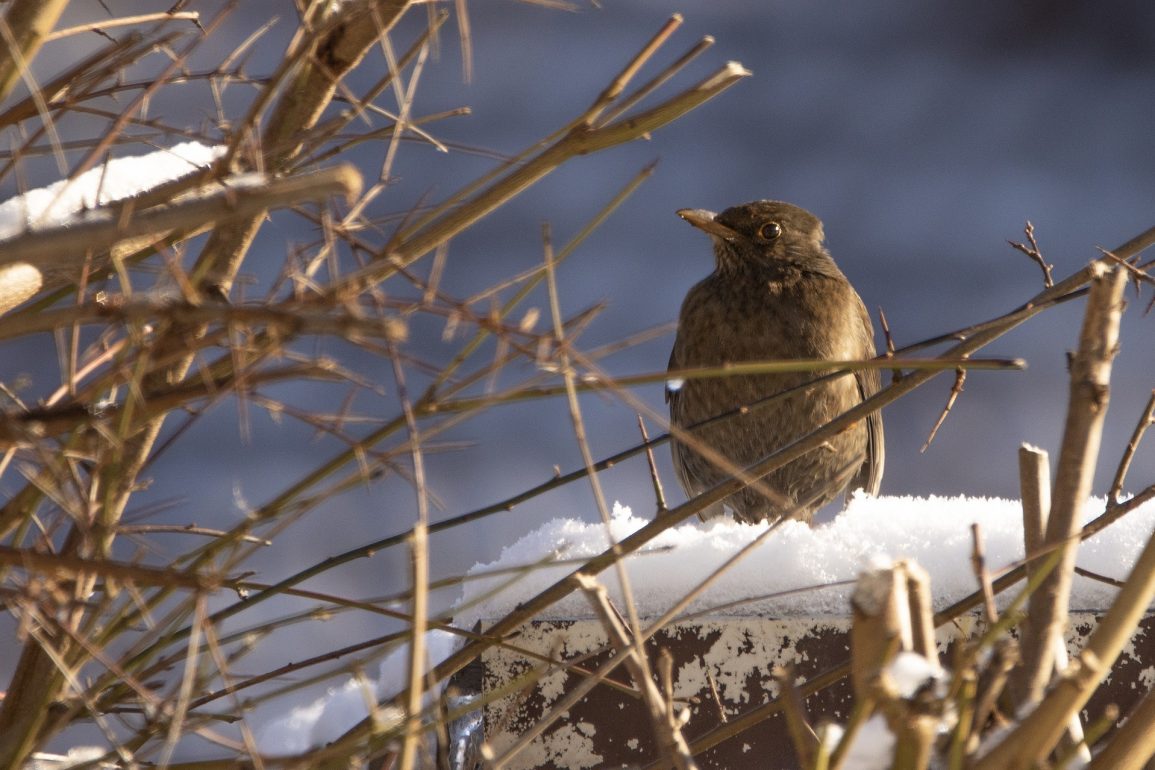How do garden birds stay warm during a freezing cold night? CJ Wildlife is asking the public to consider their garden birds during the ongoing cold spell, with the temperatures set to drop to -10 degrees in some isolated areas.
With the Met Office issuing a warning for the UK of ongoing frost, many people will prepare themselves with extra layers, warm mugs of tea, and wrapping up warm when venturing outdoors; it is easy to forget about the natural world and how garden birds will cope.
David Lindo, also known as the Urban Birder and long-term partner of CJ Wildlife advises,
“When the weather gets cold, most mammals grow thicker fur or their winter coats. This is not the case for our birds. Instead, they add extra, light downy feathers which appear during their autumn molt, these then stay beneath the main body of feathers to provide insulation and warmth when the frost begins”.
But their winter feathers aren’t enough to ensure their survival during the colder months. As Christmas nears; birds have only 8 hours of daylight to find food to regain their strength and warmth overnight, when the ground is frozen or covered with snow this becomes even more difficult. Bird feeding stations will become increasingly busy in the morning and late afternoon, as birds know where they can find a filling and nutritious meal to regain their strength ahead of another harsh night.
David Lindo suggests high-fat and high-protein foods: “Small birds can lose up to 10% of their body mass on a cold night, so it is important this is restored the next morning to survive. Bird food packed with fat and calories is vital for winter survival. The extra calories help to restore lost body fat and protein and also ensure they stay strong and fuller for longer. CJ Wildlife peanut cakes or peanut fat squares are a great source of both protein and fat in the winter, as well as a protein boost through mealworms or peanuts. But ensure birds have fresh, non-frozen water in the morning too, this not only helps keep them hydrated, but it helps them to keep their feathers in tip-top condition”.
Despite having their extra downy feathers, which birds fluff up to trap warm air to maintain their body heat, birds also shiver to keep warm and will tuck their heads under their wings. Many will find shelter in a tree or nearby nest box. It is not unusual to find many birds huddled together to share warmth.
David continues: “If you can also provide a nest box this winter for your garden birds, it can really help them to stay warm and away from the bitter cold. Be sure that predators cannot access the nest box and that it is not facing a southwest direction. Providing a nest box in the winter also increases your chances of birds returning in the spring for the breeding season! So you can save a life this winter and help them to raise their young next year – amazing!”
For more information on keeping birds well during the winter visit CJ Wildlife here
Lilly Light


